Menstrual hygiene practices and ending child marriages take root among South Sudan’s pastoralists
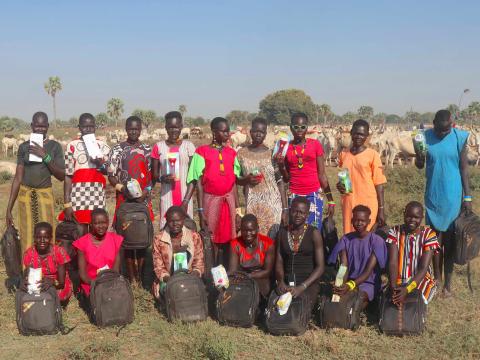
Every ethnic group in South Sudan has its customary laws, which regulate existing traditional practices such as arranged marriages and bride prices paid in cattle. These are central to the culture and economy of South Sudan’s pastoralist communities.
Among the cultural beliefs, a girl’s first menstrual period automatically graduates her to adulthood. The family and relatives throw a major celebration declaring her ready for marriage. By the time a girl has her second period, she should be in her husband’s home.
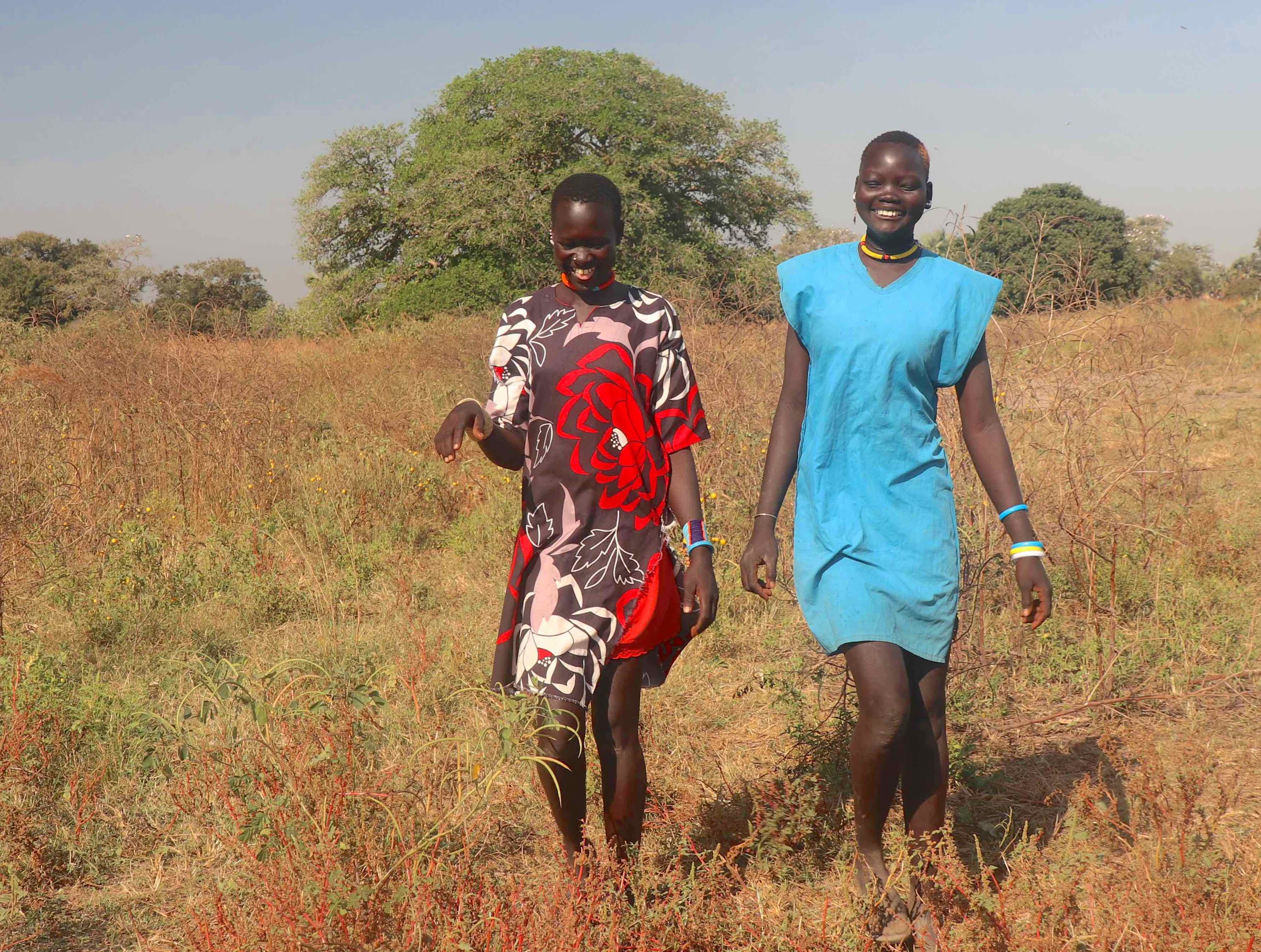
Bith, 15, had her first period two years ago. She shares, “Menstrual period to us means maturity and marriage. My two elder sisters got married at the age of 13 immediately after their first period.”
She said being in the pastoralist community isolated them from the rest of the world. Bith adds, “We have no knowledge of proper menstrual hygiene practices.” Bith and hundreds other pastoralists moved to Aguath village in early 2020, which is one-hour away from Tonj South County.
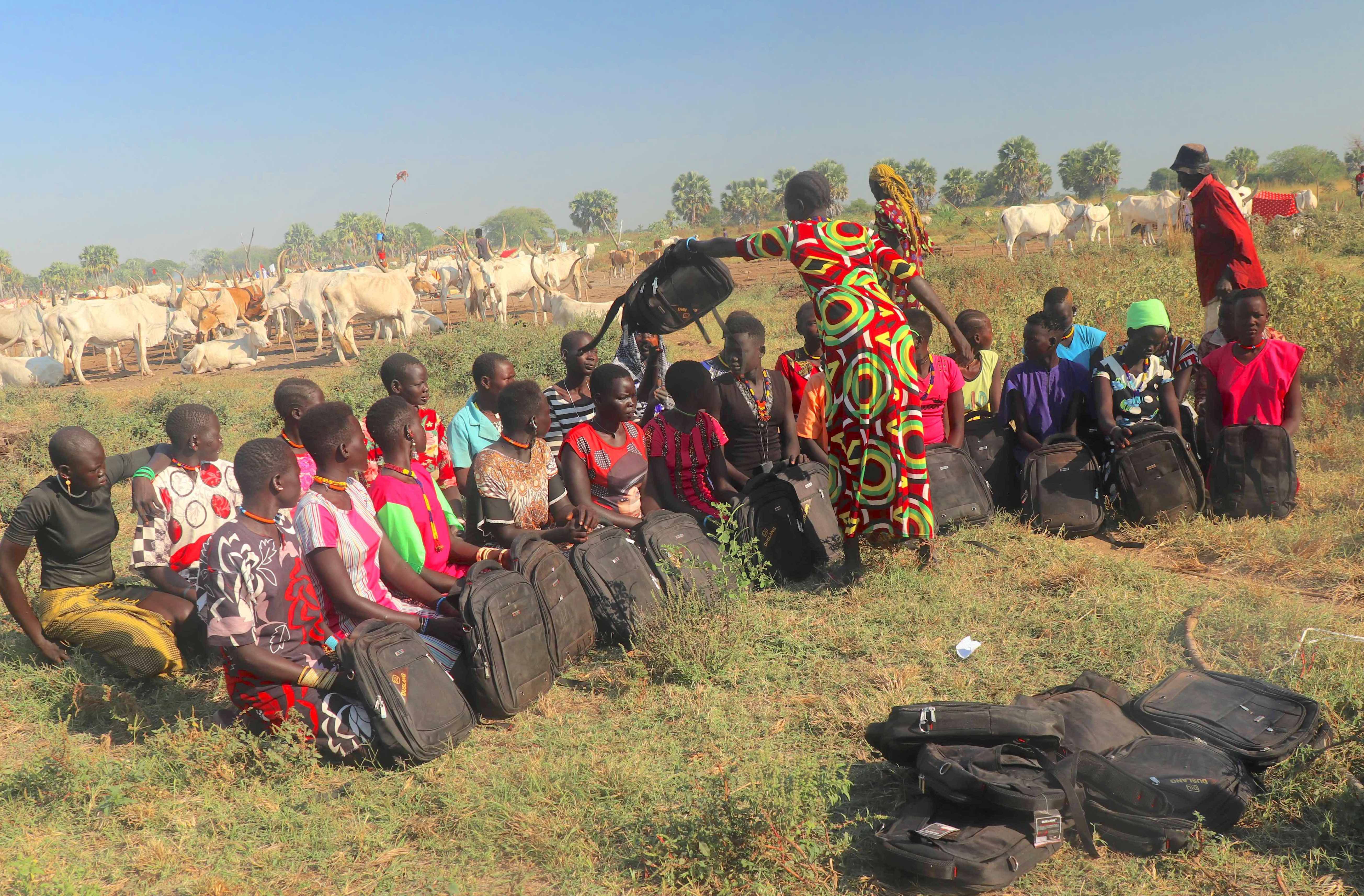
“This place is close to town, with non-government organizations frequent visits to the camp, we learned a few things, one of which was that having a menstruation is a ticket to marriage but a normal thing for every woman”, she shares.
Village chief Manyiel Ayiei says, “Before World Vision started supporting us, the leaders were trained on the dangers of child marriage which slowly reduced the practice. But the lack of knowledge on menstrual hygiene was still a huge gap among the girls.”
Observing menstrual hygiene is a good personal practice that need to be promoted to protect women from infections and allow them live with dignity.
Bith fortunately escaped an early marriage but wondered how to handle herself during her period. “Every month, I stay inside the tukul (traditional hut) for three days without taking a bath as practiced in our community”, she adds.
The girls at the camp also face the challenge of the absence of hygiene facilities and water supply. She says, “We go to the bush to defecate, which we know poses danger to our health. Due to lack of water cannot take a bath reguarly as advised by World Vision during the awareness sessions.”
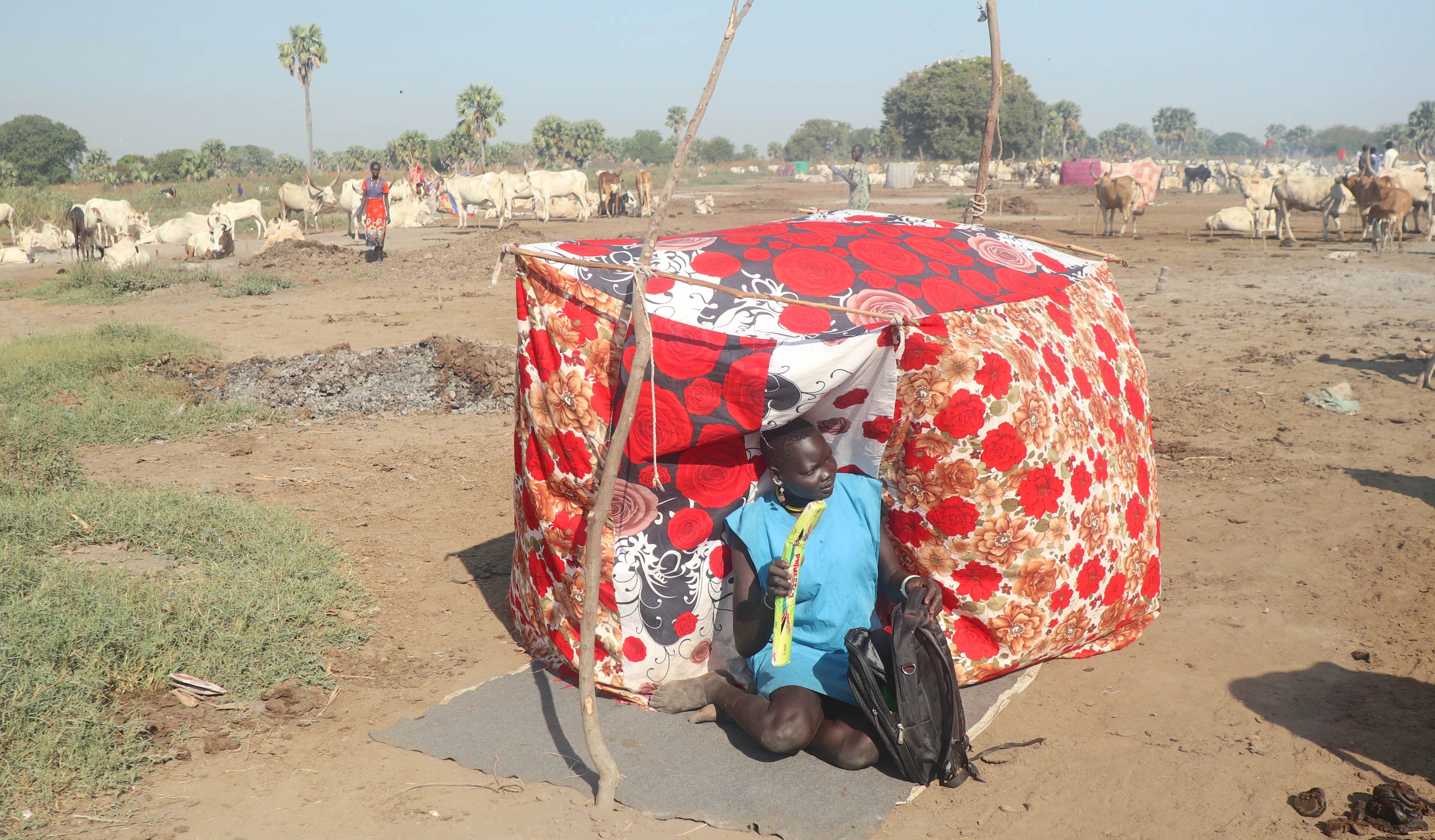
Bith appeals to World Vision and partners to consider digging a water source and building latrines in the camp. “We are grateful that we have been rescued us from child marriage. There are still many challenges, but we are grateful our eyes are opened to our rights and important knowledge”, Bith further adds.
Maria Deng, World Vision’s Project Coordinator said that 140 females are reached with the menstrual hygiene support in five cattle camps of Greater Tonj. Deng says, “Observing menstrual hygiene is a good personal practice that need to be promoted to protect women from infections and allow them live with dignity.”
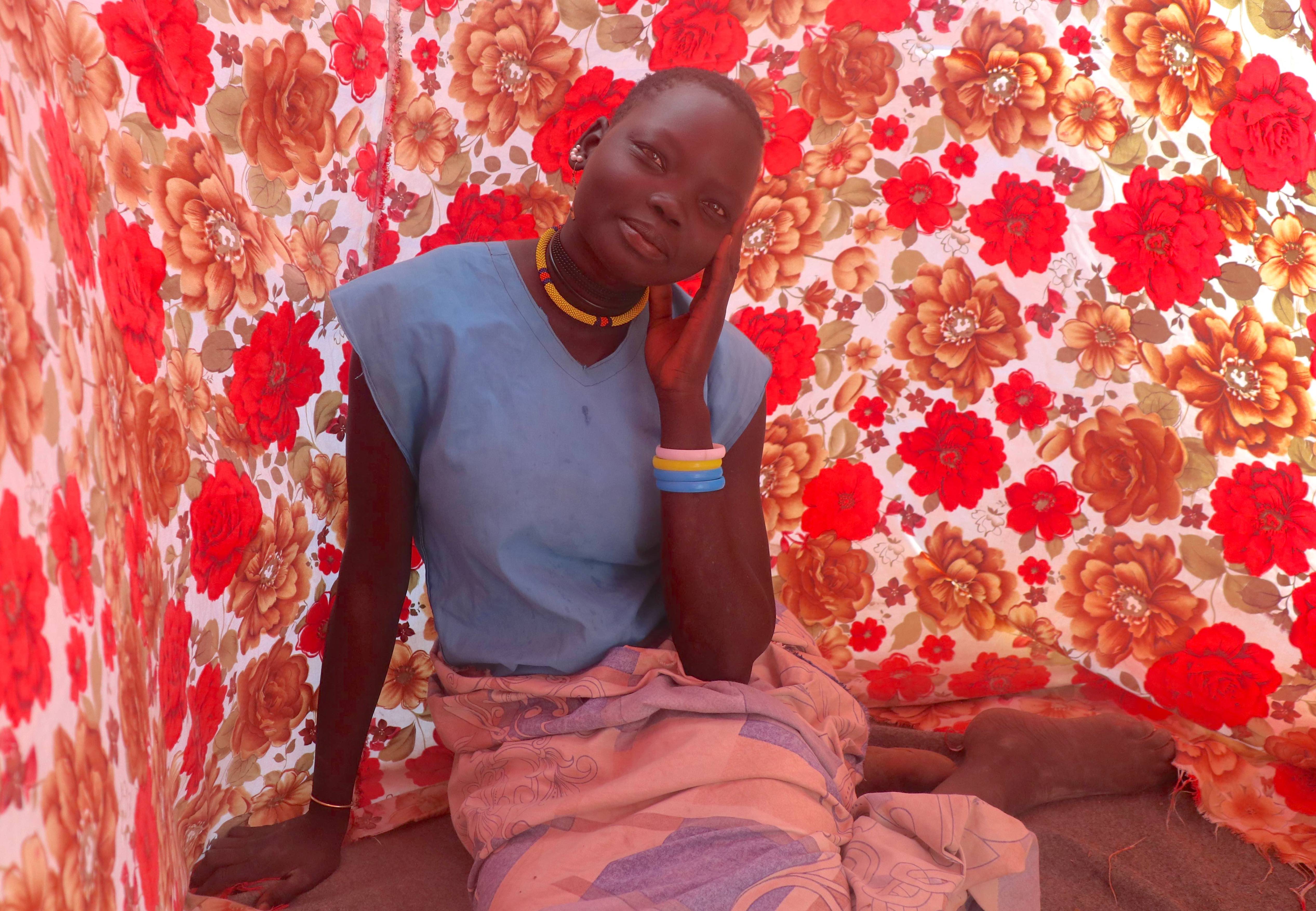
She concludes, “Having access to dignity kits at the cattle camps remain a challenge for all women and girls. Let us continue supporting the communities until capacity is strongly established and the importance of personal hygiene is well understood by the pastoralists.”
World Vision and Food and Agriculture Organization (FAO) work together to help address the needs and education of the pastoralist children and families.
Story and photos by Scovia Faida Charles Duku, Communications Coordinator